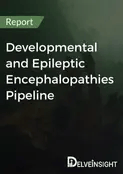Developmental and epileptic encephalopathies (DEEs) represent among the most formidable pediatric neurological challenges, featuring catastrophic seizures, severe cognitive decline, and complex developmental disruption. The journey toward breakthrough treatments encompasses a comprehensive development ecosystem stretching from fundamental scientific discovery to clinical implementation, reflecting both the intricate biological mechanisms underlying these disorders and the pressing need for transformative therapeutic interventions.
Research Foundation: Genetic Architecture and Molecular Targets
The therapeutic innovation process commences with foundational research focused on unraveling the genetic and molecular basis of disrupted neurodevelopment. Revolutionary advances in genomic analysis, including high-throughput sequencing technologies and comprehensive genetic profiling, have transformed our ability to identify disease-causing genetic elements—from single nucleotide variants to complex polygenic factors—that contribute to rare epileptic conditions. These scientific breakthroughs enable identification of promising therapeutic targets, including malfunctioning proteins, defective ion channels, disrupted neurotransmitter pathways, or compromised signaling networks that trigger seizure activity and developmental failure.
Current research emphasizes understanding how genetic alterations compromise neural circuit establishment, disrupt neuronal communication patterns, and impair synaptic functionality, creating the scientific groundwork for therapeutic development strategies.
Experimental Validation: Sophisticated Model Systems
Scientific confirmation employs cutting-edge laboratory platforms to demonstrate therapeutic feasibility. Advanced experimental systems, including patient-specific cellular models, three-dimensional brain organoids, and engineered neural networks, facilitate systematic evaluation of therapeutic compounds for their capacity to restore normal cellular function. Parallel investigations using genetically modified animal models that accurately replicate human disease features provide comprehensive testing environments for evaluating therapeutic effects on seizure frequency, developmental outcomes, and neurological performance.
This validation process requires extensive interdisciplinary cooperation, integrating knowledge from genetics, neurobiology, drug development, and clinical translation to refine therapeutic approaches and enhance mechanistic understanding.
Multi-Modal Treatment Development
Following successful validation, research activities concentrate on creating specific therapeutic interventions across various treatment categories. Small molecule therapeutics undergo intensive optimization for neuronal modulation, efficient brain delivery, and comprehensive safety profiles. Biological interventions, including monoclonal antibodies and gene-targeted treatments, are designed to directly influence target proteins or rectify fundamental genetic abnormalities. Gene-based therapeutic strategies, incorporating viral vector systems, antisense technologies, and RNA interference approaches, show exceptional potential for addressing core disease mechanisms rather than symptom management alone.
Comprehensive Preclinical Testing
Extensive preclinical evaluation involves detailed studies of drug behavior, safety characteristics, and biological effects. Researchers systematically examine how therapeutic candidates perform within living systems, assessing brain penetration capabilities, metabolic processing pathways, and potential impacts on normal development. These investigations determine optimal treatment protocols while identifying safety considerations, ensuring therapeutic appropriateness for vulnerable pediatric populations whose developing brains may exhibit increased sensitivity to pharmacological interventions.
Human Clinical Testing Initiation
Therapeutic candidates demonstrating promising preclinical results advance to meticulously designed initial human studies. These foundational investigations, typically starting with adult participants before progressing to carefully selected pediatric patients, concentrate on safety evaluation, treatment tolerance, and preliminary therapeutic activity verification. Initial Developmental and Epileptic Encephalopathies Clinical Trials utilize sophisticated biomarker technologies to monitor target engagement and confirm biological activity.
Advanced Research Design
The rarity and complexity of developmental and epileptic encephalopathies demand innovative clinical research methodologies. Scientists implement flexible study frameworks, including adaptive protocols, patient-centered approaches, and biomarker-guided enrollment strategies. Integration of comprehensive patient databases, longitudinal natural history studies, and validated assessment instruments enhances research effectiveness while improving detection of meaningful therapeutic improvements in limited patient populations.
Definitive Efficacy Assessment
Following encouraging preliminary outcomes, therapeutic candidates advance to large-scale effectiveness evaluations. These pivotal studies, conducted across multiple global research centers, assess therapeutic impacts on core outcomes including seizure control, developmental progress, and life quality enhancement. Clinical evaluations incorporate both seizure-specific measurements and broad neurodevelopmental assessments, acknowledging the complex relationship between epilepsy management and cognitive advancement.
Personalized Medicine Implementation
Modern therapeutic development approaches within the Developmental and Epileptic Encephalopathies Pipeline increasingly emphasize individualized treatment strategies designed for specific genetic profiles. Customized interventions, including patient-specific antisense therapies or individualized gene correction approaches, represent revolutionary advances toward truly personalized medicine through specialized research designs adapted to unique genetic characteristics.
Continuous Monitoring and Evidence Collection
Ongoing assessment through patient registries, digital health platforms, and remote evaluation technologies enables comprehensive analysis of long-term treatment outcomes, safety considerations, and developmental trajectories. This real-world clinical data continuously guides research priorities, treatment refinement strategies, and future study design optimization while ensuring sustained patient safety and therapeutic effectiveness evaluation.
Collaborative Research Ecosystem
Strategic alliances between academic research institutions, biotechnology companies, patient advocacy organizations, and regulatory agencies foster continuous innovation. These collaborative networks accelerate research translation, support investigator-initiated studies, and maintain patient-focused development approaches while utilizing diverse funding mechanisms including federal support, charitable contributions, and commercial investment.
Technology Integration and Innovation
Emerging technological advances, including next-generation gene editing platforms, innovative diagnostic biomarkers, and sophisticated disease modeling systems, continue transforming therapeutic development possibilities. Active engagement from specialized Developmental and Epileptic Encephalopathies Companies integrates pharmaceutical industry expertise, biotechnology innovation, and disease-specific knowledge to tackle these complex neurological challenges through targeted therapeutic development initiatives.
Latest Reports Offered by Delveinsight:
Ftase Inhibitor Market | Laband Syndrome Market | Pneumoconiosis Market | Pseudoxanthoma Elasticum Market | Recurrent Blood Clots Market | Gluten Sensitivity Market | Gene Therapies For Cardiomyopathies Market | Subscription Healthcare | Competitive Intelligence Services | Pharmaceutical Consulting Firms | Her2+ Directed Therapies Market | Opium Addiction Market | Congenital Myasthenic Syndromes Market | Injectable Drug Delivery Devices | Plasmodium Vivax Malaria Market | Sepsis Market | Bone Grafts And Substitutes Market | Moderate To Severe Acute Pain Market | Ophthalmic Viscoelastic Devices Market
Latest Reports:
https://www.delveinsight.com/report-store/microvascular-angina-epidemiology-forecast
https://www.delveinsight.com/report-store/premature-labor-tocolysis-epidemiology-forecast
https://www.delveinsight.com/report-store/narcotic-overdose-epidemiology-forecast
https://www.delveinsight.com/report-store/fecal-incontinence-epidemiology-forecast
https://www.delveinsight.com/report-store/radiologic-cancer-therapy-epidemiology-forecast
https://www.delveinsight.com/report-store/radiodermatitis-epidemiology-forecast
https://www.delveinsight.com/report-store/al-amyloidosis-epidemiology-forecast-insight
https://www.delveinsight.com/report-store/dyspepsia-epidemiology-forecast
https://www.delveinsight.com/report-store/her-gastric-cancer-epidemiology-forecast
About DelveInsight
DelveInsight is a trusted provider of life sciences and pharmaceutical market research and consulting, offering actionable insights that empower organizations to make informed decisions. With a commitment to delivering strategic intelligence, DelveInsight serves as a key partner to global pharmaceutical, biotechnology, and healthcare companies looking to excel in an evolving market landscape.
Contact Us
Kanishk
Email: kkumar@delveinsight.com

